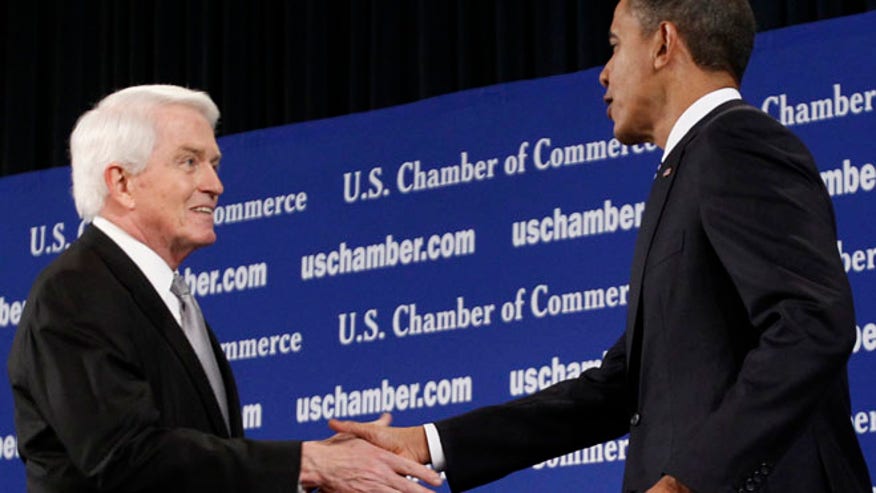12/28/2014

source

Feb 7. 2011: President Obama is greeted by Chamber of Commerce President Tom Donohue as he arrives to address the crowd in Washington. (Reuters)
The U.S. Chamber of Commerce flexed its muscle in the midterm election, winning 14 of 15 Republican primaries in which it was involved and helping the GOP recapture the Senate. Now it wants the Republican majority in Congress to get to work.
Chamber Chief Executive Tom Donohue said in an interview that the GOP has two years to enact “a vigorous program aimed at meeting the needs of the American people” or risk losing their majority. The Chamber wants Congress to act on business priorities such as an immigration overhaul, transportation funding, tax breaks and trade agreements.
Mr. Donohue warned lawmakers to move beyond intraparty skirmishes and partisan bickering that paralyzed the last Congress, hinting that his group might look to oust lawmakers who try to derail the legislative process.
The Chamber played a central role in the midterm campaigns, spending more than $70 million, according to an official. After backing a number of losing candidates in 2012, the goal for the group—and the Republican party—in 2014 was to nominate candidates with the best prospects of winning a general election, and an aptitude to govern once they arrived in Washington.
“We had candidates who were fundamentally more interested in turning over the apple cart than they were in governing,” Mr. Donohue said of the congressional elections in 2010 and 2012.
Of 268 candidates the Chamber endorsed in the 2014 election, 249 won, including 22 in the 30 most contested races in which the group was involved. In the eyes of Mr. Donohue and other Chamber officials, the results sent a clear message: “People want Congress and the Senate to govern,” Mr. Donohue said. “They want them to be competent.”
Polls support that view. Public-opinion surveys taken before and after the election showed a much higher share of the electorate wanted to see lawmakers compromise than in 2010, when the tea-party wave swept Republicans to power in the House.
source
No comments:
Post a Comment